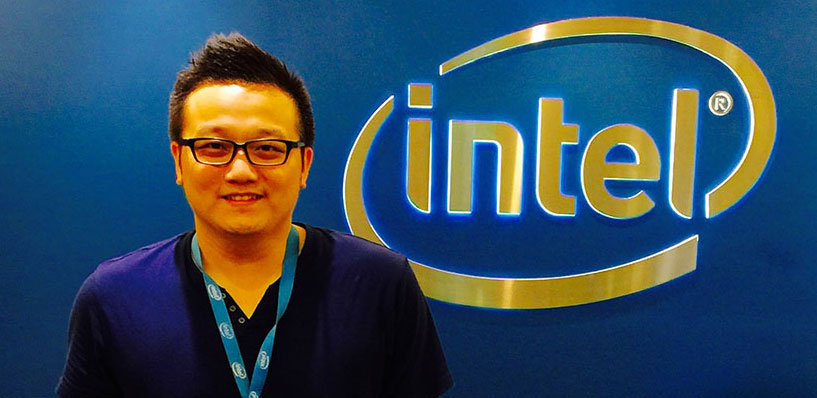Making Sense of the Magic
Denny Hsieh applies lessons from Northwestern Engineering's Master of Science in Project Management (MPM) program into his daily work at Intel.
Denny Hsieh speaks candidly when he discusses his skills as a presenter prior to starting the capstone communication project in Northwestern Engineering's Master of Science in Project Management (MPM) program.
“I was pretty bad,” Hsieh (MPM '08) said. “Imagine an international student flying more than 7,000 miles to Chicago for his new journey. English was a second language, and I didn't have Google Translate or Apple Siri to help me.”
The capstone project requires each student to write a 20-30 page report on a topic of personal interest and then make a 30-minute presentation about the content. For Hsieh, a native of Taiwan, the task was daunting, but like each of his experiences in MPM, once he went through the process, he could tell he'd grown. And like most of what he learned in the program, he continues to apply lessons he learned to his daily work as a senior technical program manager at Intel.
“A lot of what I learned from class is still applicable for my daily job,” said Hsieh, who's worked at Intel since 2011. “Even for the capstone report, I'm leveraging the presentation skills in my daily job when presenting to senior management.”
The MPM program’s goal is to help turn technically skilled professionals into dynamic business leaders, which is what the program did for Hsieh. At Intel, he coordinates the lifecycle of some of Intel’s most advanced and emerging products.
“Engineering is the closest thing to magic that exists in the world," he said, "and my role is to let people know when this magic will be realized and how much it costs."
To do that well, Hsieh routinely leans on his MPM education. He learned program scheduling concepts that provide the framework for how he schedules projects, and he was taught finance and accounting methodologies that are relevant when he reads financial reports.
Most importantly, it was in MPM where he learned to be a project manager.
When Hsieh first considered graduate programs, each one he explored was in a business school. MPM was the only program that caught his interest that was affiliated with an engineering school. That differentiation was appealing then, and he said it continues to remain appealing today.
“In MPM, I could learn and experience both engineering knowledge and business management skills,” he said.
That combination molded him into what he believes is a unique project manager. He also finds himself applying core tenets of project management into his day-to-day life outside of the office.
“In most of my important life events, I use project management skills,” he said. “Because project management can apply to work and also to life, I highly recommend that prospective students join the MPM family.”


